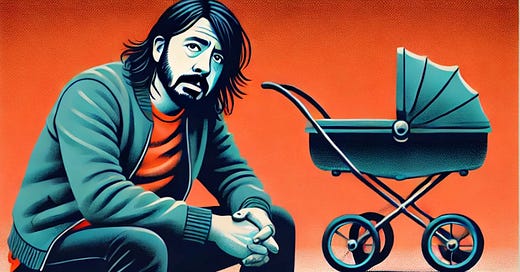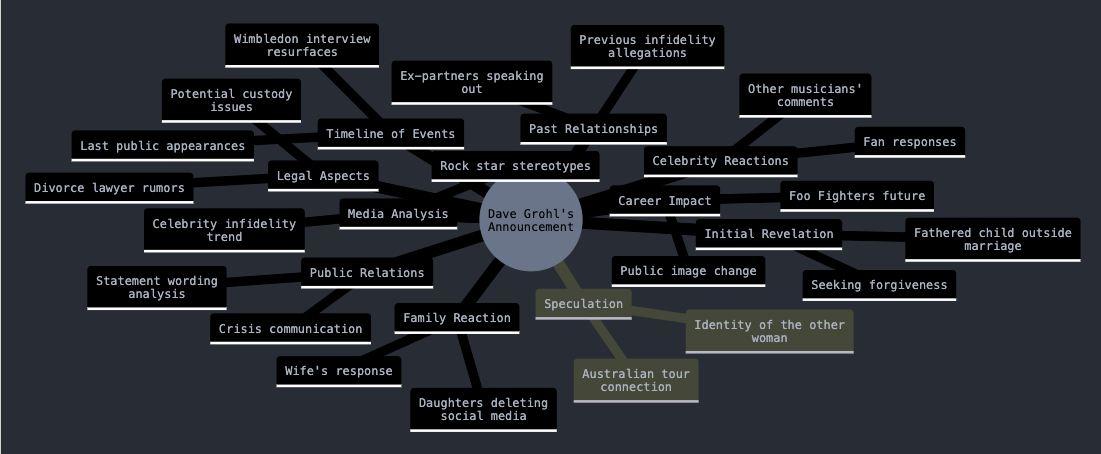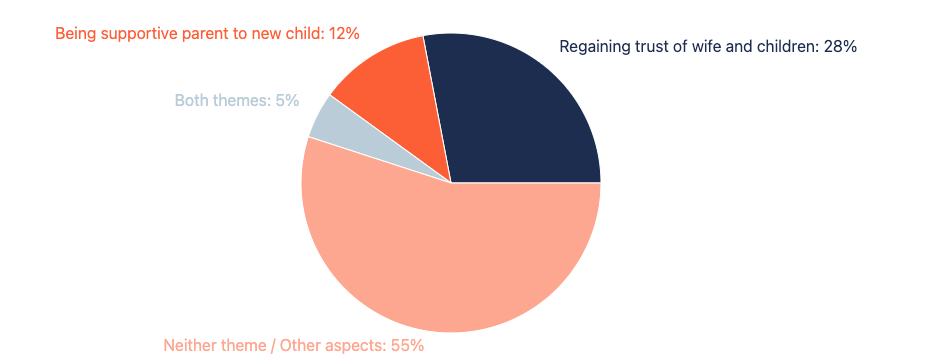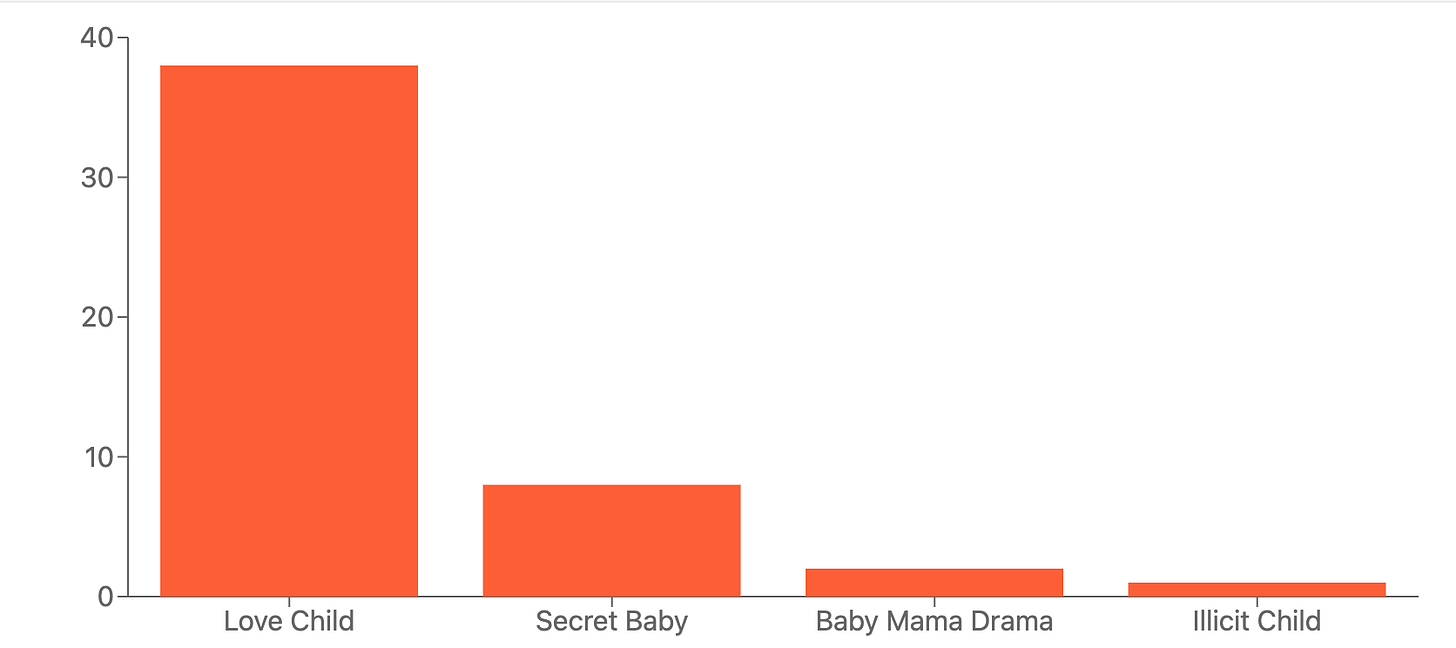Crisis Comms Under the Microscope: Dave Grohl’s Approach
An Exploration of the Strengths and Weaknesses in Dave Grohl’s Response to His Infidelity Scandal
So, rock legend Dave Grohl is in the news and for reasons I suspect he doesn’t feel great about.
On Tuesday, he put out a short statement on Instagram1 saying the following:
And—unsurprisingly—a major news cycle followed. As of 1pm on 9/12, a full 99% of the top 300 stories on Google News about Dave Grohl are focused on his infidelity. In the world of celebrity gossip, this is as center stage as it gets.
Before we move on, let’s state the obvious: “rockstar makes dubious life choice” isn’t exactly the most shocking headline in history. After all, the cliché “sex, drugs, and rock n’ roll” has been a thing since at least the 1960s. However, the contrast between Dave’s long-standing reputation as the “good guy” and “elder statesman” of rock adds some compelling narrative tension to his situation.
To be honest, I thought twice about covering this. The details of the scandal don’t interest me much, and I’ve never had a deep musical connection with the Foo Fighters2. But this article in the New York Times article about Grohl’s comms strategy to get ahead of the scandal caught my eye.
The NYT article polled different comms experts about Grohl’s approach to Communications, basically summarizing their advice into two macro points:
Grohl was wise to put this out during an incredibly US presidential debate news cycle.
Getting this news out proactively - while personally painful in the short term- helped minimize damage3
At their core, both strategies make sense. But I found myself wanting actual data about how these strategies performed more than hot takes. So, I did my own analysis and thought I’d share.
What I Think Dave’s Team Was Trying To Do
First, I’m going to make an assumption based on my 25+ years in crisis work: somewhere in Dave Grohl’s camp, there’s likely a piece of paper with one objective and two strategies that look something like this:
Objective: mitigate long-term damage to Dave’s reputation
Strategy 1: minimize the scope, focus and duration of the newscycle
Strategy 2: proactively push Dave’s messaging on our own terms, (in this case, focusing on personal accountability, love of family and love for new child).
While each crisis expert might have their own way of articulating these points, it’s safe to say they form the bedrock of any “Crisis 101” playbook.
So . . . . Is It Working?
It’s only been 48+ hours and the news cycle is still playing out, but here are my early reactions to what we’re seeing, testing the theories presented by the NYT experts:
New York Times Point #1: Grohl’s was wise to put this out amidst in an incredibly busy news cycle, during a flurry of US Presidential Debate and 9/11 memorial coverage.
“. . . . Mr. Grohl’s post was probably strategically timed, coming on the same day as the highly anticipated debate between Vice President Kamala Harris and former President Donald J. Trump” . . . . “He likely knew that the media and the algorithm was going to be focused on the presidential debate.”
Did it Work? Personally, I haven’t found any data that suggests the timing made a difference in the outcome of the news cycle. While it's common practice to “dump” bad news into a crowded news day in hopes it won’t be noticed4, I doubt that strategy works the same for celebrity scandals of this magnitude.
Why? The large mechanisms in place for creating and distributing news (press outlets, social channels, reporters, editors, influencers, etc.) are fundamentally different between presidential politics and celebrity news. Put simply, the American news and culture machine (and its consumers!) deserve more credit for their ability to focus on more than one thing at a time.
What Evidence Do I Have?
For me, it comes back to those hundreds of stories in the Google News feed that are 100% focused on Grohl’s scandal. So I ran a quick analysis and took away a couple of key points:
1) This Is A Multi-Day News Cycle: The initial bombshell about Grohl’s infidelity was just the beginning. In fact, Day One wasn’t even the peak of coverage. While the story broke on the same day as the presidential debate, the bulk of press attention came on Day Two and is still building as of Day Three. The timing of the debate didn’t diminish the impact.
2) This Is A Splintered Narrative. Like many celebrity scandals, this one fractured into numerous mini-stories, each chasing a unique angle. This splintering can keep the story alive for days, if not longer. In fact, I found that only about 21% of the total coverage so far focused exclusively on the initial revelations, meaning that more reporting (and thus time) is required to pull something together.
To take that deeper, I used AI to map the different mini-angles unfolding as the narrative has splintered into more than two dozen directions5.
And just anecdotally, speaking from my own experience, I noticed that news coverage about the debate and Grohl’s scandal coexisted in my own social feeds. Yes, I was absolutely one of those people obsessively combing through social channels for debate analysis and perspective that night6, and I definitely saw coverage about Grohl woven into my feed. Some stories just break thru, especially when celebs and scandal are involved.
So bottom line, if the timing of this announcement was in fact strategically intended to coincide with the debate, the data I’m seeing doesn’t suggest that it made much difference.
New York Times Point #2: Getting this news out proactively - while personally painful in the short term- helped minimize damage.
”The decision by Mr. Grohl to make a pre-emptive announcement may well have been an attempt to control the narrative, something that crisis communications experts said was savvy.”
What Was Grohl Trying To Achieve? In crisis communications, leading the narrative is always more effective than reacting, and this case is no exception. No reasonable advisor would have expected Grohl to emerge from this news cycle with positive sentiment. Instead, the best outcome would be ensuring the key messages and positioning from his Instagram statement are pulled through—maximizing his ability to shape the a negative news cycle on his own terms.
Did it Work? What Evidence Do I Have? On this front, the outcome for Grohl is mixed: 45% of analyzed articles highlighted themes like “Being a Supportive Parent to a New Child” or “Regaining Trust of Wife and Children” in the headline, subhead, or opening line. This upfront “real estate” is critical in any article because it grabs attention and sets the tone for the reader. When key messages appear in such prominent positions, they’re more likely to influence the overall perception of the story.
Importantly, this positive framing made a significant impact on Day 1, where nearly 75% of early stories pulled through one or both of these themes in the headline, subhead, or first line. That’s a solid outcome. However, as is typical in prolonged negative news cycles, fewer stories continued to pull these messages through upfront as time went on. Instead of relying on Dave’s statement, journalists began exploring different angles of the story, as is expected.
On the flip side—while I don’t have a baseline for comparison—the data suggests Grohl’s camp’s proactive approach helped mitigate sensationalist tabloid-style headlines and subheads to some extent. While I personally find terms like “love child” disappointing in any article about a newborn in 2024, I recognize that some outlets inevitably revert to sensationalism.
So, while these numbers are higher than I’d like to see if I were part of Grohl’s comms team, I do suspect the number of tabloid-style references was somewhat reduced compared to what we would have seen if they had simply reacted to an exposé from a source like TMZ.
Bottom Line
So, does the data support the New York Times' theories? It’s a bit of both. Being proactive was clearly the right move for Grohl. His team’s early push allowed key messages—like family and accountability—to resonate, with nearly half of the initial coverage reflecting those themes. This was a solid win for shaping the narrative early on.
However, the timing of the announcement during a busy news cycle doesn’t seem to have lessened the coverage. While it may have been a strategic consideration, the data suggests that it didn’t meaningfully reduce the story’s prominence.
In the short term, being proactive helped manage the fallout and likely reduced the sensationalism that could have taken over, but the long-term effects on Grohl’s reputation remain to be seen.
What do you think? When it comes to the Communications strategy and tactics, would YOU have made any different decisions? As aways, I’d love to hear what you think.
Will
Publisher, The Repute
Founder and Principal, Valentine Advisors
will@valentine-advisors.com
Interesting tactical fact: the statement itself didn’t go on the Foo Fighters page which has 5.6M followers, but instead went on Dave’s somewhat unconventionally named personal page (davestruestories) which has a MUCH smaller following of 1.4 million. In many ways this makes sense, and I suspect was an intentional attempt to contain the story.
Although as a teenager in the 1990s, I absolutely LOVED Nirvana.
Anybody who has been reading The Repute for the last 9 months will know that “proactivity always” is the centerline of my communications philosophy.
Have I (or teams I’ve led) done this? Absolutely.
Sorry, I had a hard time getting the colors right on this graphic.
And before somebody screams, “it’s your algorithm!” at me, let me make a few points: 1) as a middle-aged white American male, I acknowledge that it’s entirely plausible I’d be served content about the Foo Fighters more than other people. I fit their demographic, even if they’re not my thing. But I’m definitely not doing anything to seek their content myself. 2) I don’t follow any music-related accounts on most of my social accounts, so the algorithm shouldn’t be naturally inclined to serve me music-focused content. 3) In some cases, I was actually using unlogged accounts for debate analysis because I was trying to get outside the bubble of my own algorithm. So - to me - the fact I was STILL seeing Grohl’s intermixed with debate coverage news leads me to believe this was truly breaking through vs. something in my own content bubble.













